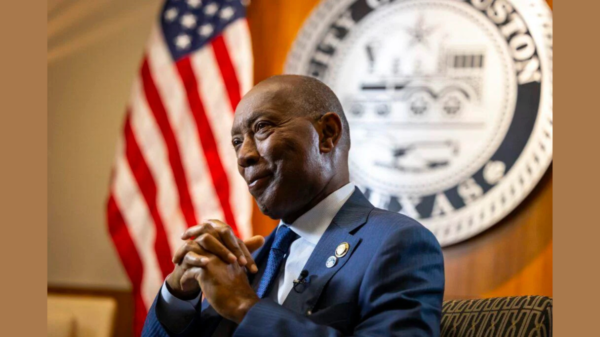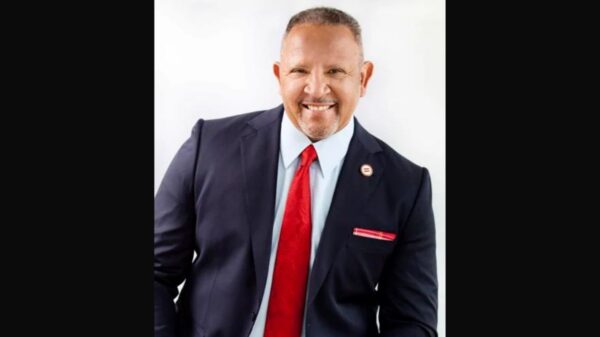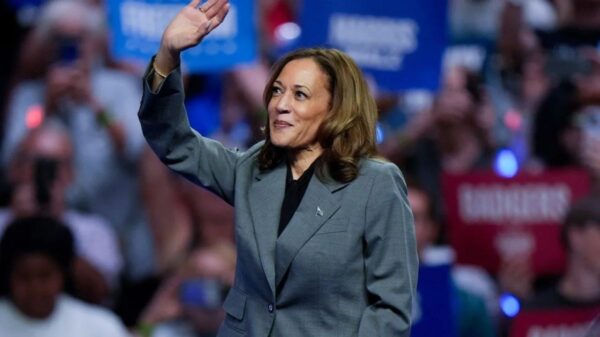
The Texas Senate’s unveiling of its priority school voucher bill has sparked conversations about the future of education for Black students in the state. School vouchers, in essence, provide parents with public funds to enroll their children in private or charter schools, as an alternative to traditional public schools. Supporters argue that vouchers empower parents by granting them more choices in their children’s education. Critics, however, voice concerns about the potential impact on public education, equity and accountability.
Education in Texas has been a subject of much debate, but now, with the introduction of the voucher bill, the stakes have never been higher. This landmark legislation promises to redefine the educational landscape, offering parents choices like never before. Yet, it also raises profound questions about the future of public education, particularly for the Black community, whose journey toward educational equity has been marked by many challenges.

What’s new?
Gov. Greg Abbott and the Texas Senate has introduced Senate Bill 1, aimed at establishing an education savings account program during a special session.
Sen. Brandon Creighton (R), author of SB 1, says the bill proposes granting families access to $8,000 in taxpayer funds. These funds can be utilized for private school expenses, including uniforms, textbooks, tutoring, transportation, and more.
The administration of these education savings accounts will be overseen by the state comptroller’s office. To support this initiative, SB 1 seeks to allocate $500 million from the general revenue fund over the next two years. One of the comptroller’s office’s key roles will be to prevent fraud and misuse of funds, addressing a significant concern among lawmakers. Additionally, they will approve an organization responsible for processing applications and vetting vendors and participating private schools.
Creighton emphasizes that this program won’t divert funds from public schools since the financing derives from the general revenue, separate from the Foundation School Program, which primarily funds K-12 public schools in the state.
Game of politics
One of the central questions surrounding school vouchers is how they may affect underserved communities, particularly those with a significant Black and Brown population. Advocates contend that vouchers can expand educational opportunities by allowing students to escape failing schools. However, critics argue that diverting funds from public schools to private institutions may exacerbate disparities, as public schools often serve a higher proportion of minority and low-income students.
“This would be nothing more than another PPP Loan for the rich, except they don’t have to pay it back,” said Rep. Jarvis Johnson (D). “If we are going to pull money from general revenue, how long do you think that will last? It’s irresponsible. Once the money runs out, we’ll have to face tax increases.”
In a state known for its conservative politics, the voucher debate often hinges on beliefs about parental choice, limited government intervention, and the role of competition in improving education. But Johnson says Republicans are pandering to their base which is a small percentage of people who can afford for their children to attend private school.
Johnson told the Defender that his children went to private school and it gave him a financial perspective that he wants other families to take into consideration.
“Eight thousand dollars sounds nice now, [but] you’ll be paying a lot more. Who’s going to be paying for lunch? How will you transport your kids to school? Private schools don’t have buses. How many private schools are in the hood? Uniforms aren’t free. Field trips aren’t cheap,” he explained. “Private schools and why they were created is because it’s a status symbol. Instead, the focus should be to increase student allotment and resources to special education programs, and increase teacher pay so we can retain quality certified instructors.”
Black families and parent choice
According to asurvey by the Hobby School of Public Affairs at the University of Houston, a majority of Texans back some form of taxpayer support for private schools. In Texas, Black residents show strong support for school vouchers, with 78% favoring vouchers for low-income families and 65% supporting vouchers for all families. Additionally, 79% of Black Texans back state tax credits for donations to aid low-income children in attending private or religious schools, and 68% support such tax credits for all Texas children.
Denisha Allen is an education reform advocate and founder of Black Minds Matter, a national movement that promotes the development of high-quality school options for Black students. She became an advocate for school choice when she struggled academically in public school in Jacksonville, FL. She was reading below her grade level and often had to avoid getting into fights with her classmates because of it. Her teachers were frustrated, and she felt dismissed and unsupported.
When her godmother applied for a state scholarship program to a small private school, she saw a shift in her performance.
“Public school wasn’t a great fit for me. I failed the third grade twice. I went to about five different public schools growing up and it didn’t work,” she said. “When I went to private school, it changed my life. The teachers and students were kind and supportive. They took their time to help me learn at a pace I understood. Fast forward, I graduated with honors and became the first in my family to graduate high school, went to college and got a master’s degree.”
Allen said money is a big issue when it comes to school choice and believes there are stigmas around school vouchers that need to be addressed. She said student choice has existed long before this debate when redlining had “students trapped inside zip code-based schools” in poor neighborhoods and parents would lie about where they lived in order to send their kids to a better school district.
“The money should be spent to educate students no matter where that student goes to school, she said. “Many low-income kids received Pell Grants to go to college, and they choose which private or public schools to attend. Why shouldn’t that be applied to K-12 education?”
Kortney Revels, an HISD parent disagrees. Her daughter is a third grader in the North Forest feeder pattern and is concerned that tax dollars supposed to be spent on public education and not meant for the private sector or corporations. In 2013, North Forest wasannexed in HISD due to the former districts “continued poor academic performance over the past year as reflected in its low high school completion rate and poor performance on statewide assessments,” according to the Texas Education Agency. North Forest had nearly 6,000 students bordering HISD to the northeast with the student population of about two-thirds African American, one-third Hispanic, and 100% of the students coming from low-income families.
“Student choice and vouchers shouldn’t be on the table with this takeover being at the beginning stages,” she said. “We should ensure that nothing changes before we can get some results. The state and district need to put more effort into taking care of the school infrastructures, paying our qualified teachers, giving our educators the capacity to properly teach our students with the most need.”
“Private school tuition in Houston can be as high as $30,000 a year. Private schools are not affordable to the majority of poor and middle class families in communities of color, even with this voucher program. Private schools do not have a the same requirements as public schools. Private schools have no legal requirement or obligation to enroll any student and typically do not admit students with special education needs because they are not prepared to provide those essential and vital services.”
SENATOR BORRIS L. MILES









You must be logged in to post a comment Login